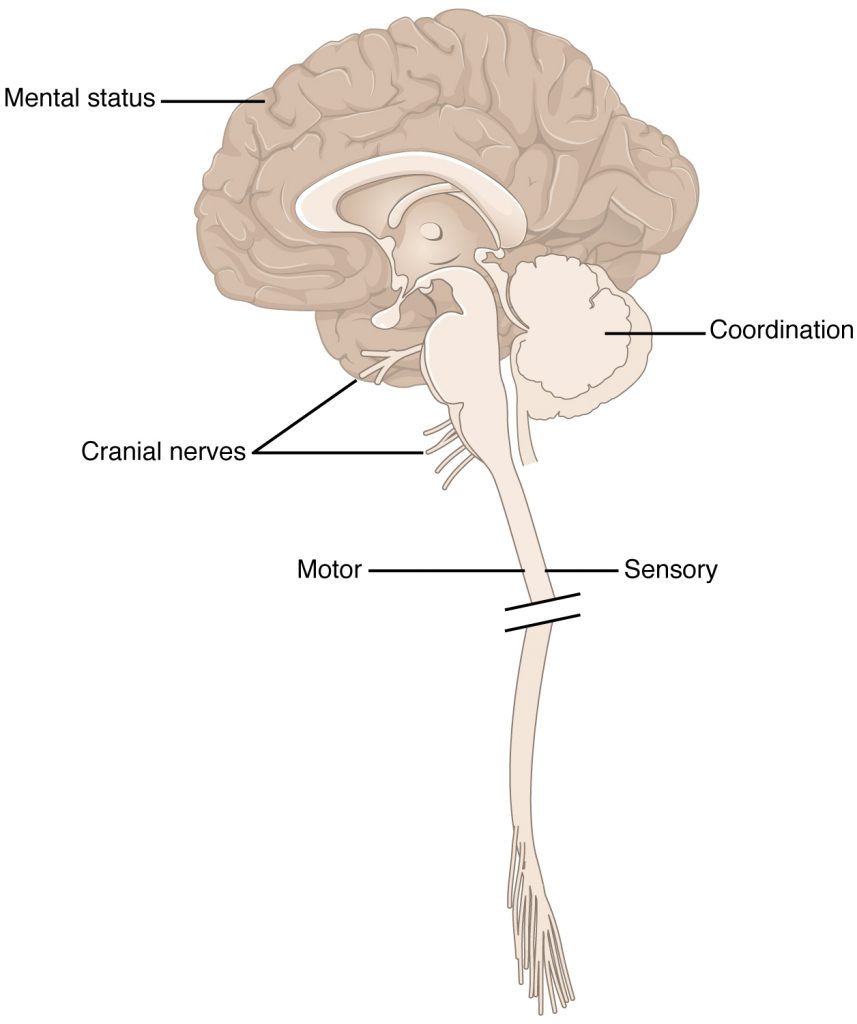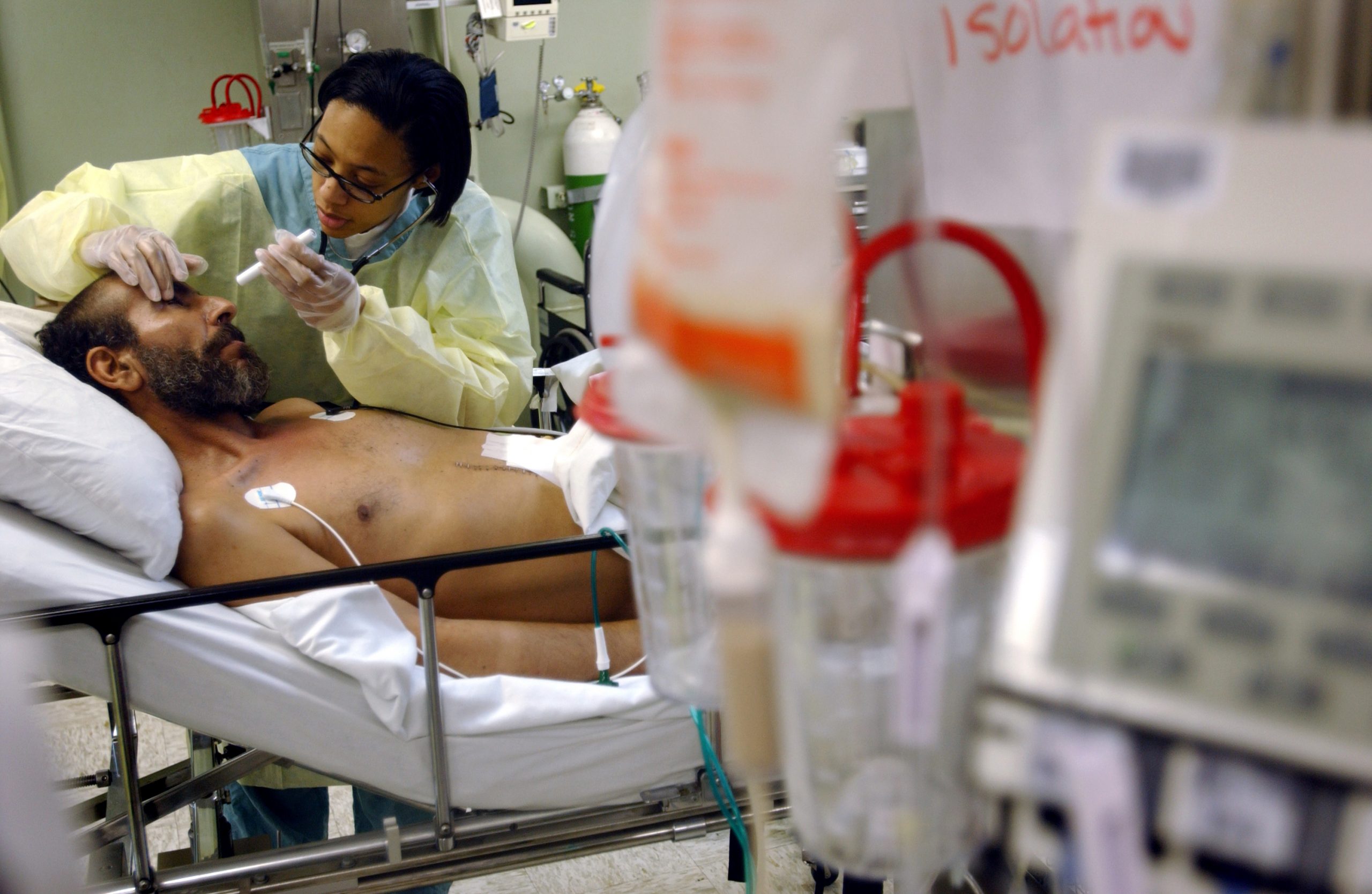6.3 Neurological Exam
Open Resources for Nursing (Open RN)
The neurological exam is a clinical assessment of the functioning of the central nervous system (CNS) and peripheral nervous system (PNS). See Figure 6.7[1] for an image of the anatomical underpinnings of the neurological exam. Several tests are available when performing a neurological assessment; the tests included in the assessment are selected based on the patient’s medical condition and the neurological symptoms they are experiencing. The range of tests that can be included in a neurological exam include evaluation of mental status, cranial nerves, sensory functioning, motor strength, cerebellar functioning, and reflexes. The mental status exam assesses the higher cognitive functions such as memory, orientation, and language associated with the cerebrum and cerebral cortex. The cranial nerve exam tests the sensory and motor functioning of the 12 cranial nerves that connect to the diencephalon and the brain stem. The sensory response and motor strength tests evaluate functions associated with the spinal nerves. The cerebellar function tests evaluate balance, muscle tone, and coordination of voluntary movements. Deep tendon reflexes may also be used to assess the health of the nervous system.[2] Each of these components of a neurological exam is further described in the remaining sections of this chapter.

Types of Neurological Examinations
The type of neurological exam performed is based on the patient’s reason for seeking care, their current medical condition, and the practice setting.
Routine Exam
Routine neurological exams performed by registered nurses during their daily clinical practice include assessing mental status and level of consciousness, pupillary response, motor strength, sensation, and gait. The Glasgow Coma Scale is also frequently used to objectively monitor level of consciousness in patients with neurological damage such as a head injury or cerebrovascular accident (i.e., stroke).[3]
Comprehensive
A comprehensive neurologic exam is performed on patients with a neurological concern. This exam is more extensive and may be performed in specialty settings or by advanced practice nurses. In addition to the components included in a routine neurological exam, the examiner may also assess cranial nerves, detailed cerebellar function, deep tendon reflexes, and complete a Mini-Mental State Exam (MMSE).
Periodic Reevaluation
Periodic reevaluations are performed by registered nurses when the patient has experienced an acute injury or illness causing neurological deficits that require frequent monitoring for change in condition. For example, a patient admitted to the hospital for an acute cerebrovascular accident (i.e., stroke) will have their neurological status rechecked and documented frequently according to agency policy. See Figure 6.8[4] of a nurse assessing a patient’s neurological status in an intensive care unit.

- “1601 Anatomical Underpinnings of the Neurological Exam-02.jpg” by OpenStax is licensed under CC BY 3.0. Access for free at https://openstax.org/books/anatomy-and-physiology/pages/16-1-overview-of-the-neurological-exam ↵
- This work is a derivative of Anatomy & Physiology by OpenStax and is licensed under CC BY 4.0. Access for free at https://openstax.org/books/anatomy-and-physiology/pages/1-introduction ↵
- Giddens, J. F. (2007). A survey of physical examination techniques performed by RNs: Lessons for nursing education. Journal of Nursing Education, 46(2), 83-87. https://doi.org/10.3928/01484834-20070201-09 ↵
- “US Navy 030424-N-6967M-240 Lt. j.g. Elavonta Thomas conducts a routine check on one of the patients in the Intensive Care Units (ICU) aboard USNS Comfort (T-AH 20).jpg” by Photographer's Mate 1st Class Shane T. McCoy at U.S. Navy is in the Public Domain ↵

